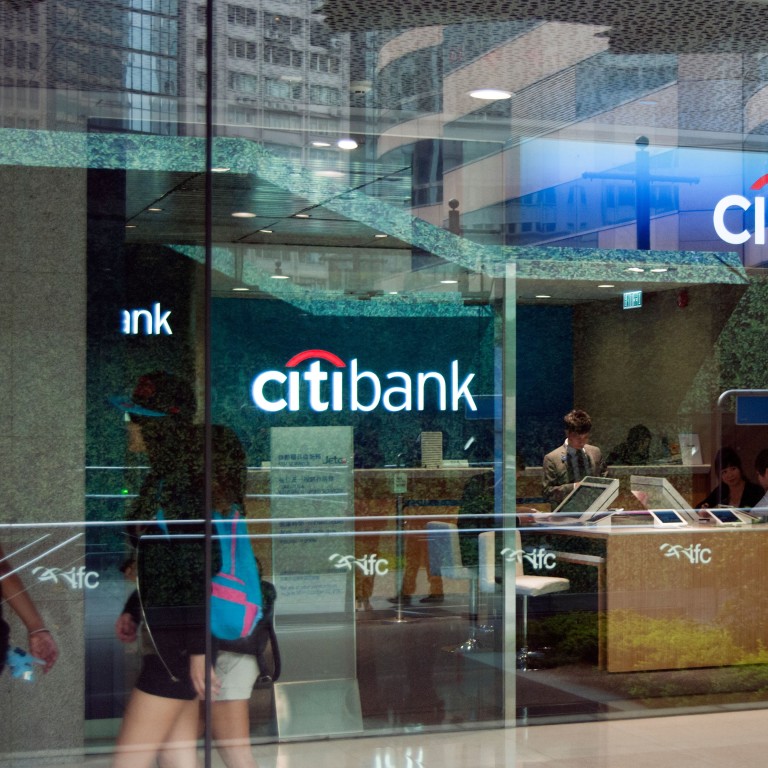
Citi turns to AI for the early work in approval of corporate loans – and chooses Hong Kong for first testing
- Earlier, AI has been tapped to help out on retail consumer loans
- AI will free up time for bank staff to focus on whether to actually give the green light to corporate loans
US banking giant Citigroup has begun tapping artificial intelligence to analyse companies’ financial statements in the approval process for corporate loans – an unusual step because to date AI technology has concentrated on retail consumer loans.
Citigroup developed the technology and chose Hong Kong for its first tests.
The technology enables computers to scan and read hard copies of clients’ financial statements and automatically calculate indicators such as current ratio and leverage ratio, Anson Kwok, head of commercial bank at Citi Hong Kong, said in an interview.
Bankers will use the results to decide whether and how much to lend to a company.
“Client experience will improve in the end because we will do things faster and make fewer mistakes,” Kwok said.
The trial began last month in the bank’s credit analysis department in Hong Kong, and has shortened the usual 10 to 15 days needed to approve a corporate loan by at least two days. Without the technology, employees have to key in and calculate the financial figures manually.
Fintech start-ups such as WeLab, a Hong Kong-based online lender, and Chinese players like Ping An Insurance have spearheaded the transformation with AI-empowered online loan applications.
Citi has tested the technology on less than 10 per cent of all cases, and achieved 94 per cent accuracy rate with the calculations, Kwok said.
The bank will improve the accuracy and expand the use of the technology to all cases over the next six to eight months. The bank will not lay off staff because of the automation, which will allow employees to concentrate on higher value-added tasks, he said.
“Financial analysis is after all only one part of the whole process. Humans still have to make all the judgments and decisions,” he said.
Built by Citi’s in-house developers over the past year, the technology could eventually be applied to branches in China, Taiwan and Singapore once it can understand the Chinese language.
Kwok expects Citi’s Hong Kong commercial banking business to keep growing at a double-digit percentage rate in 2019, after its revenue expanded by 18 per cent in 2018.
Sentiment among Citi’s clients has turned more optimistic this year with higher hopes for a resolution of the US-China trade war, which dragged lower the division’s growth in the third and fourth quarter of last year, he said.
The number of new clients has climbed by over 15 per cent this year already, showing that “things are improving from the past two quarters”, Kwok said.
Citi has also been actively developing products targeting companies in the Greater Bay Area, which encompasses Hong Kong, Macau and nine surrounding mainland Chinese cities, he said. Details about a policy initiative to connect the 11 cities are due to be released before Thursday.

